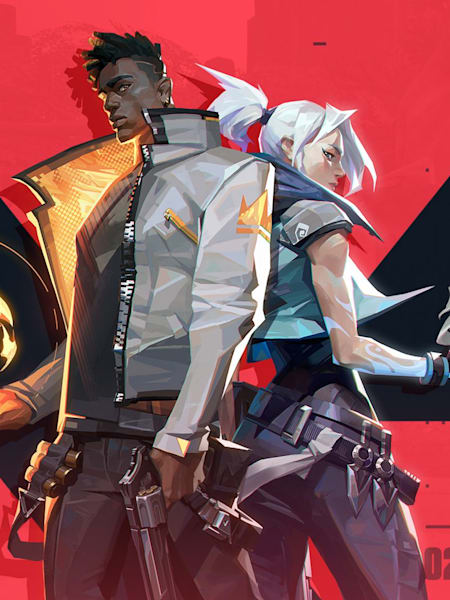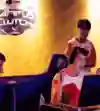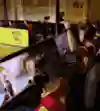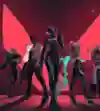Gaming
You can get all the details about Red Bull Campus Clutch, and sign up, here.
VALORANT, like any team-based shooter, has its fair share of secrets and terms that might leave the average gamer scratching their headset. What’s an entry fragger? Why is trading a good thing for some teams but not others? What’s economy and why can’t I ever afford an OP? What even is an OP?
It takes a little groundwork to really understand what’s going on in a game of VALORANT. While most with typical shooter experience will know the basics, this isn’t your typical game. The guide below will help explain why your team is flaming you in the chat about “not shift-walking.” So, without further ado, let’s start with...
Ability trading
A testing manoeuver for attackers and a stall tactic for defenders. Characters with AOE – Area of Effect – abilities (smoke flashes and damage-dealing abilities) can stall a push, or force the defenders from favorable positions. They're responsive plays to nullify the advantage the enemy’s ability would have gotten.
Ace
When one player gets all five kills in a round, they get an ace. Often you see the other teammates back off to let them get the ace, rather than let someone else get the kill. A Team Ace is when all of the players on a team each get a kill in during the round. Teamwork makes the dream work.
At Red Bull Campus Clutch 2022, an ace by Egypt won "Moment of Glory"
© Blanka / Red Bull Content Pool
Aggro
A player playing aggro will be giving away their position and drawing enemy attention to themself. Sometimes it is meant to open up a flanker for a play on an off angle, or to change the outcome of a drawn-out gunfight. If a player is playing aggro, most crosshairs will be on them.
Counterstrafe
The first bullet out of your weapon in VALORANT will always be the most accurate, barring sprinting around and firing like a mad person. Counterstrafing is when a player stops their direction with either A or D, immediately changing direction. Firing your weapon while in the middle spot, before you start to move in the other direction, gives you far more consistent aim.
Cubby
A cut-out of a wall, or small nook where someone can wait for an enemy to cross their path. There are usually multiple cubbies per site and map.
Dink
A headshot. There's a noticeable "dink" noise. Most times, it will be a one-shot kill, but shields and varying gun damage will play a factor.
Double set up/Double up
When two players, usually defenders, stack the exact same spot to try and overwhelm the enemy peeking. Oftentimes, where the team is double stacked, there will be a quick exit option so that one player can quickly rotate if needed, while still leaving one behind to hold the mid ground. When a team loads four or more players onto one side, it's called stacking the site.
Double swing
Done when playing aggressively, two players swing out from cover to try and get a pick or force a trade. You see this often on offense, as a first-peek strategy, or on defense, when defenders know they are facing down numbers and try to win in a quick burst.
Having two targets can cause some players to hesitate, wondering who to focus on, or it could result in all players focusing on one player in the double swing, giving their teammate enough time to force a trade or even pick off all the players who they turned on.
There are plenty of scenarios where econ comes into play.
Economy (Econ)
The money (credits) a player has access to and how they distribute it. Kills, plants, assists and round wins all affect how much money a player will have to spend per round. Not spending it wisely can leave a player stuck, unable to use the highest tier of weapons.
Having good aim and game sense aren’t the only factors in VALORANT: there are plenty of scenarios where econ comes into play. Starting off a round with a pistol, but looting an Operator or Vandal from the enemy can drastically improve your team’s economy and a player’s specific econ rating. Economy can also be a cooperative effort, such as when a player upgrades from an SMG to a rifle, allowing a teammate to pick up their discarded weapon instead of buying their own, and saving credits.
Entry fragger
Typically a duelist character (Reyna, Jett, Phoenix) who leads the team in a fight by being the first one in. They won't always have the best stats, often having the most deaths, but a successful entry fragger is meant to open up space for their team as much as possible and try to get a kill or two before being traded.
Fake defuse/Ninja defuse
Beginning to defuse a bomb while there are still enemies alive, to lure them from their hiding spots and force them to play out. Doing it only long enough to trigger the audio cue, the player turns aggressive, taking on the planters trying to stop the defusal attempt.
Defusing before the team defending the bomb site is aware of what is going on is known as a Ninja defuse.
Feeding
Playing too aggressively or rushing into a point without properly checking, or without discipline. You can typically tell if someone is feeding when they are the first one dead, dead every round, or taking fights they would never have any dream of winning.
Flick
Typically, good aim has more to do with crosshair discipline and less with flicking. But sometimes an enemy pops out of the last place you would expect, requiring you to flick your mouse. Flick shots are tough to pull off, but look so good.
Force a rotate
Putting pressure in numbers on one of the bomb sites, forcing the other team to react to your play in order to draw pressure from another site. You will see this done as a feint play, early in a round with a possible smaller team planting on a soon-to-be-vacated site. This could also happen later in the round when time is running out and not much progress onto the first bomb site has been made.
Frag/Pick
A kill can also be called a frag or a pick, depending on the commentator's preference.
Full buy
Typically done with more than 4500 credits in the bank, a full buy means the player has enough for a late-round rifle, full shield and all of their abilities. The OP and assault rifles are 5000 and 2900 apiece, making them pricey and a risky purchase when lost to the enemy. You typically see full buys happen after the first three rounds, once teams have worked their way up from pistols to mid-price weapons before springing for the big guns.
Heaven/Hell
A term used to differentiate high and low ground in spots where verticality plays a role. This term gets thrown around on maps with a sniper nest, or somewhere a player can camp from both high and low ground. Teams on defense often split their resources between watching heaven and watching from an entry point.
Similarly, attackers often like to take heaven early, if they can, to eliminate the enemy’s advantage from that angle and take the high ground for themselves. As the round goes on, and a plant is being defended, you will find players get more creative on how they approach, using heaven and hell spots to their advantage.
Hookah
The short side position near B site on the Bind map. It’s a small room across from the teleporter exit that allows attacks from the high ground on B site.
Molly
A throwable ability, but unlike a grenade that has a quick detonation, a molly is a grenade that lingers. Killjoy’s nanoswarm is a molly, as is Brimstone’s. Phoenix’s throwable fire could be considered one too. It’s a play on words for Molotov, since they have the same kind of afterburn, space-clearing effect.
Money in the bank
A team that has won a few rounds and has not needed to spend much to resupply themselves. The cap is 9000, so you will oftentimes see richer players buying for the ones who have died in previous rounds.
Building up money is done by buying cheap weapons, a light shield and only minimal abilities. When facing tougher odds, sometimes sacrificing a round to better equip later is necessary.
One tap
When enough damage has been done to a player that they are literally one tap of someone else’s trigger/mouse away from being sent to the spectator screen.
OP
The Operator, simply known as the OP, is a sniper rifle and the most expensive weapon in VALORANT. Able to one-shot most enemies, even those with full shields, it is deadly in the right hands, single-handedly locking down long lines of sight. You’ll hear about the OP a lot.
Orb pick-up
Ultimate orbs lie all over the maps. There are two near each team spawn, as well as some near the entry points to bomb sites. They boost the ult meter by one, at the cost of a sound cue and the risk of being an easy target for a few seconds. There are lots of reasons why it’s worth grabbing an orb. At certain times, you will see teams letting one specific player take them more often, with the hopes of building up a higher-value Ultimate Ability.
Peek/Jiggle peek
To quickly turn the corner and try to spot enemy positions, hopefully baiting out a shot with relatively low risk. Jiggle peeking is the same but with faster and more fragmented peeks. The aim is to make yourself the smallest possible target with the intention of baiting out the enemy’s shots. Often used when facing an OP.
Peeking off a player is when the enemy is focusing on another aggro'd teammate, or you are in the middle of double swing. Doing this lets a teammate push with the knowledge that someone is watching their blindside. The person peeking off the other is meant to clean up the kills in any trade situation.
Pistol round
The first and sometimes second round of a match. Where both teams can only afford a side arm and possibly an ability or two. Strategies are very different than in later rounds.
Playing off-angle
Playing an uncommon spot or angle in hope of catching the enemy off guard, since usually they won’t be expecting to check that corner or angle. Jett can use her mobility to get up to high ground, and playing from up there constitutes an off angle.
Playing slow
Rounds can get long in VALORANT, and best-of-25 matches can lead to a lot of variance in strategy. Sometimes a team will wait for the defense to get bored or antsy, and push. Other times they scan for intel, or just wait in their backline, hoping to rush the point late and put pressure on the other team. Playing slow helps bait out any pesky abilities the other team might have.
(Insert A B or C) Point long and short
Each point will have two entries, subject to bomb site variance depending on map. The entries on the farther side of the map, with longer lines of sight and favorable defensive positions, are called long. A Long, B Long, and C Long. Short is the inside path to the point, which will be very close to the short path, running parallel to the opposite site. With closer quarters.
Post plant
The phase in a round after the bomb has been planted and the attackers defend site and the defenders take the offensive to retake site and defuse the bomb. If there hasn’t been a lot of action in a round, this is typically when it begins.
In situations perceived as unwinnable, like being down between 1 to 5 and 1 to 3, the post-plant phase is where defenders might go for exit frags. You lie in wait near a bomb site for the enemy to flee its detonation – typically scoring a quick kill or two to hurt their economy.
Prefire
A tactic used in first-person shooters that is especially prevalent in games like VALORANT, where time to kill is so low. A player shoots through a wall where an opponent is in hope of catching them as they peek. Sometimes it will be done while pushing, as it can be good to get you out of a 50/50 situation.
Rez
The ultimate ability of the agent Sage is called resurrection. Rez for short.
Shift-walking
Don’t know what shift-walking is? Well, neither do lots of teammates in Unrated mode. We’re not tilted, you’re tilted. Anyway, the term refers to the “shift” key: walking while holding (or toggling) the shift key keeps you quiet and your position unknown. This is the reason why so many rounds start off so slowly. Unless a team is found out or making an aggressive play, they will probably be doing this.
Shift-walking is important because it will prevent your footsteps from making noise. Loud steps are an audio cue that will give the other team information like where you are, which direction you’re going and what site you are attacking. Players should run only when it’s not prudent to shift-walk, when they are going for an aggressive/quick push or when they are in the middle of a fight and their location is already known.
Smoke out
When Omen, Brimstone, Jett or Cypher toss their utility smokes onto the map and the area is obscured. Getting smokes out usually forces the team on the receiving side to play conservatively or retreat. Smoking out a site lets the attacker make a very safe push.
Spending strategy
Spending strategy differs from ultimate economy and weapon economy. Occasionally, some players will notice a Jett go into a round with a heavy shield and a Ghost, even though they have enough for an Operator. That same Jett will probably be planning to use the Bladestorm ability instead.
Similarly, different economies will affect strategy and how a team equips itself. Another example of this is a player who is top-fragging – spending all their money on abilities – with another teammate buying them a strong weapon, while light buying for themselves.
Thrifty
Winning the round by getting a kill with an enemy player’s weapon.
Trade
When one person on each team dies within the duration of a gunfight. Oftentimes the entry fragger will be one of the trades. Usually happens when the second enemy is killed by the second teammate in, while the attention is focused on the entry fragger.
Your ult, or ultimate, is the most powerful of your character’s abilities.
Ultimate/ Ult
Your ult, or ultimate, is the most powerful of your character’s abilities. This requires kills, or orb pick-ups, to unlock instead of a purchase with credits. Good players will generate their ults at a quicker rate than bottom fraggers. Each character’s ult is unique to them and will open up the game in a different way.
Whether by flat-out killing people, revealing information or allowing for safe pushes into bad spots with the potential for follow-up kills, you will instantly know the difference between a regular ability and an ultimate.
Wallbang
To shoot through a wall or another piece of cover that enemies can be hurt through. There are always enemies waiting around the next corner in VALORANT, so shoot through instead. Some weapons can puncture far easier than others, but it never hurts to try. Surprise kills on bomb campers often come from clever, big-brain wallbangs.
Red Bull Campus Clutch is an open tournament for university students, where teams from around the globe battle for the title of world's best student VALORANT team. You can find out more – including how to register and where to watch the World Final – here.
Part of this story









